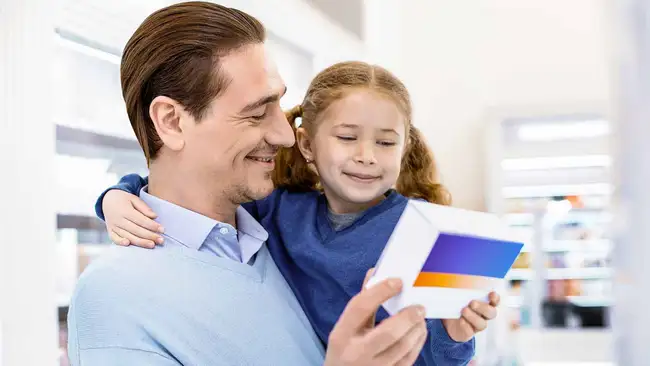Infected Insect Bites
Those aged 1 year old and above can access advice and NHS-funded treatment for infected insect bites
- Treatment of infected insect bite/stings
- Assess your condition
- Free NHS
N/A
South Ealing Pharmacy, Ealing, London W5 4RJ
10 minutes
Free
NHS Pharmacy First: Help for Infected Insect Bites in Children Aged 1 and Above
Insect bites are an inevitable part of childhood, whether it’s a mosquito bite during a summer picnic or an ant bite while playing in the garden. For the most part, these bites heal quickly with a little care. But sometimes, an insect bite can become infected, causing discomfort and worry for parents.
If you’re concerned about an infected insect bite, the NHS Pharmacy First service is here to help. At South Ealing Pharmacy, we provide advice and treatment for children aged 1 year and older, helping you manage infections and prevent further complications.
This guide explains how to recognise infected bites, what you can do at home, and when to seek professional help.
What Causes Insect Bites to Become Infected?
Insect bites typically cause minor irritation, such as redness, swelling, or itching. However, if bacteria enter the skin through the bite, it can lead to an infection. Children, who may scratch bites more often than adults, are particularly prone to this.
Signs of an Infected Insect Bite
Increased Redness and Swelling: If the area around the bite continues to grow red or swollen, it could indicate an infection.
Warmth Around the Bite: The skin may feel hot to the touch.
Pus or Discharge: The bite may ooze yellow or green fluid.
Pain or Tenderness: The bite may feel sore, even when not touched.
Fever: A raised temperature could mean the infection is spreading.
Which Insect Bites Can Become Infected?
Any insect bite can become infected if bacteria get into the wound. Common culprits include:
- Mosquitoes: Their bites often itch, and scratching can introduce bacteria.
- Ants: Some ant bites can break the skin, creating an entry point for bacteria.
- Bees and Wasps: While stings aren’t technically bites, the site can become infected if not cleaned properly.
- Fleas: Flea bites, often grouped together, are itchy and may lead to infections if scratched repeatedly.
What Should You Do If Your Child’s Insect Bite Looks Infected?
If you think your child’s insect bite is infected, acting quickly can prevent the infection from worsening. The NHS Pharmacy First service is a great first step for advice and treatment.
How the NHS Pharmacy First Service Can Help
The NHS Pharmacy First service allows parents to get advice and treatment for minor health issues without needing a GP appointment.
What to Expect at the Pharmacy
- Assessment: The pharmacist will examine the bite and ask about your child’s symptoms.
- Treatment Advice: They may recommend an over-the-counter antiseptic cream or prescribe antibiotics if needed.
- Aftercare Guidance: You’ll receive tips on caring for the bite and stopping the infection from spreading.
- Referral if Necessary: If the infection is severe or spreading, the pharmacist will advise you to see a GP.
This service is available for children aged 1 year and older, providing a convenient and professional option for families.
How Are Infected Insect Bites Treated?
Treatment for infected insect bites depends on the severity of the infection:
- Mild Infections: Antiseptic creams or antihistamines can reduce swelling and discomfort.
- Moderate Infections: A pharmacist may prescribe a topical antibiotic cream to target the bacteria.
- Severe Infections: In some cases, oral antibiotics may be needed, and a GP or hospital visit might be required.
With the right treatment, most infections clear up within a week.
What Can You Do at Home to Help?
While waiting for treatment or as part of managing a mild infection, there are simple steps you can take at home:
- Keep the Area Clean: Wash the bite gently with soap and water to prevent further bacteria from entering.
- Avoid Scratching: Trim your child’s nails and cover the bite with a plaster to reduce the risk of scratching.
- Apply a Cold Compress: A cool cloth can help reduce swelling and relieve itching.
- Use Recommended Creams: Follow the pharmacist’s advice on antiseptic or soothing creams.
- Monitor Symptoms: Keep an eye on the bite for signs of worsening infection, such as spreading redness or fever.
When to Seek More Help
Most infected insect bites improve with simple care, but you should seek further medical advice if:
- The redness and swelling spread beyond the bite area.
- Your child develops a fever or feels generally unwell.
- The bite doesn’t improve after a few days of treatment.
- There are signs of an allergic reaction, such as difficulty breathing or swelling of the face.
In these cases, it’s important to see a GP or visit A&E.
How to Prevent Infected Insect Bites
You can reduce the risk of infections with these simple steps:
- Avoid Scratching: Teach your child not to scratch bites and keep their nails short.
- Use Insect Repellent: Apply a child-friendly insect repellent when outdoors.
- Wear Protective Clothing: Long sleeves and trousers can protect your child in areas with lots of insects.
- Clean Bites Promptly: Wash bites with soap and water as soon as possible.
Book an Appointment Online
If your child is aged 1 year or older and has an infected insect bite, don’t wait. You can book an appointment online for the NHS Pharmacy First service at South Ealing Pharmacy. Booking online is quick and ensures your child is seen promptly by a trained pharmacist.

